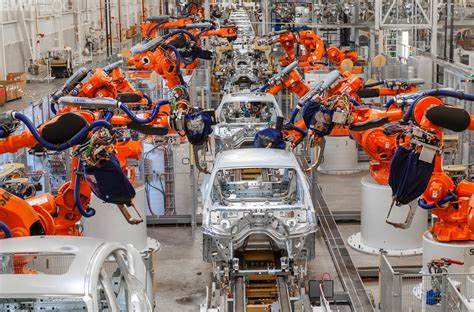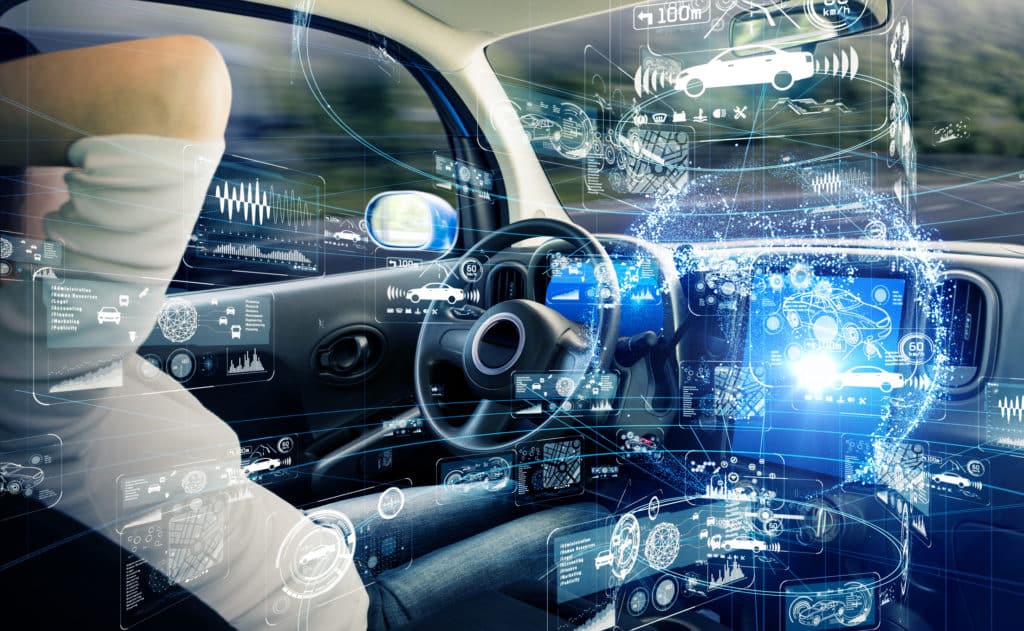The automotive industry is undergoing a transformative evolution driven by automation. From manufacturing processes to vehicle functionality, automation has revolutionized every aspect of the auto industry. This article delves into the multifaceted impact of automation in the auto industry, exploring its applications, benefits, challenges, and the profound changes it has brought to the way we design, build, and interact with vehicles.
Manufacturing Revolution Automation on the Assembly Line
Contents
- 1 Manufacturing Revolution Automation on the Assembly Line
- 2 Robotic Assembly
- 3 Quality Control
- 4 Efficiency and Scalability
- 5 Innovating Vehicle Functionality Automation Beyond the Assembly Line
- 6 Advanced Driver Assistance Systems (ADAS)
- 7 Autonomous Vehicles
- 8 Connected Vehicles
- 9 Challenges and Opportunities
- 10 Workforce Transition
- 11 Cybersecurity
- 12 Ethical and Regulatory Concerns
- 13 Environmental Impact
- 14 Innovations on the Horizon
- 15 5G Connectivity
- 16 AI and Machine Learning
- 17 Smart Manufacturing
Automation has reshaped vehicle manufacturing, optimizing efficiency, precision, and scalability.
Robotic Assembly
Robotic arms equipped with advanced sensors and programming execute intricate assembly tasks with unparalleled precision and speed.
Quality Control
Automated systems ensure stringent quality control, reducing defects and inconsistencies during the manufacturing process.
Efficiency and Scalability
Automation streamlines production, enabling manufacturers to meet growing demand while maintaining high standards.
Innovating Vehicle Functionality Automation Beyond the Assembly Line
Automation extends to vehicle functionality, enhancing safety, convenience, and performance.
Advanced Driver Assistance Systems (ADAS)
ADAS technologies use automation to enhance driver safety through features like lane-keeping assist, adaptive cruise control, and automatic emergency braking.
Autonomous Vehicles
The pinnacle of automation, autonomous vehicles, are equipped with advanced sensors and AI to navigate and operate without human intervention.
Connected Vehicles
Automation enables vehicles to communicate with each other and infrastructure, enhancing safety and traffic flow.
Challenges and Opportunities
While automation brings transformative benefits, it also presents challenges that the industry must address.
Workforce Transition
The shift towards automation requires reskilling and upskilling of the workforce, ensuring they can adapt to new roles.
Cybersecurity
Connected and automated vehicles introduce new cybersecurity challenges, necessitating robust protection against potential threats.
Ethical and Regulatory Concerns
The development of autonomous vehicles raises questions about liability, ethics, and regulatory frameworks.
Environmental Impact
While automation can enhance efficiency, concerns about the environmental impact of increased vehicle production also arise.
Innovations on the Horizon
The future of automation in the auto industry holds exciting possibilities.
5G Connectivity
Faster and more reliable connectivity will enable real-time data exchange, enhancing vehicle-to-vehicle and vehicle-to-infrastructure communication.
AI and Machine Learning
Advancements in AI and machine learning will enable vehicles to make more complex decisions and adapt to diverse driving scenarios.
Smart Manufacturing
Automation will continue to evolve in manufacturing, with smart factories integrating AI, IoT, and robotics to create agile and adaptive production systems.
Automation is reshaping the auto industry, from revolutionizing manufacturing processes to transforming how vehicles operate and interact with the world around them. As automation technologies continue to advance, the industry stands on the brink of a new era where vehicles are safer, more efficient, and seamlessly integrated into the fabric of our connected world. While challenges and ethical considerations persist, the potential for innovation and progress is boundless, promising a future where automation and human ingenuity coexist to redefine the way we move.



